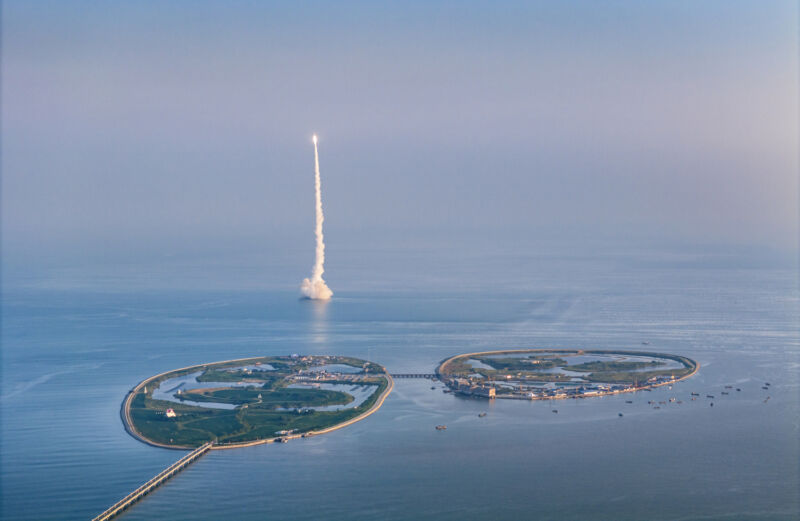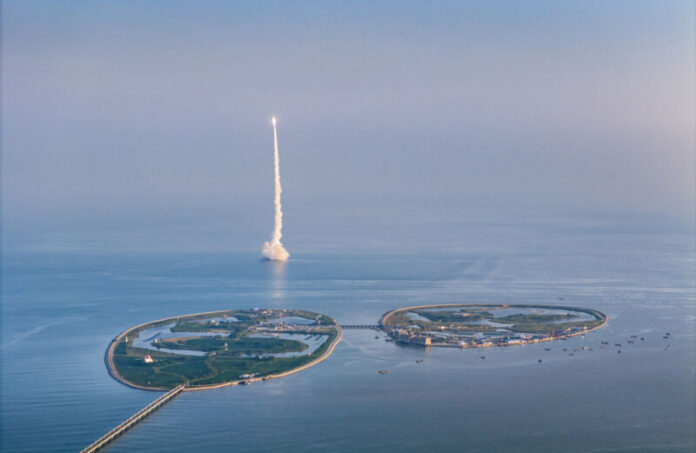
Enlarge / A solid-fueled Ceres 1 rocket, developed by the Chinese company Galactic Energy, fires away from an ocean-going launch platform in the Yellow Sea on September 5. (credit: Chen Xiao/VCG via Getty Images)
Led by SpaceX and China, the world's launch providers have put more rockets and payloads into orbit so far in 2023 than in any prior year, continuing an upward trend in launch activity over the last five years.
On Sunday, the Transportation Security Administration reported that it screened more than 2.9 million airline passengers making their way through US airports after Thanksgiving. It was the busiest day in history for US airports.
A few days earlier, the world's spaceports set a new record with the launch of a SpaceX Falcon 9 rocket from Cape Canaveral, Florida, with another batch of Starlink Internet satellites from Florida. This launch on November 22 was the 180th launch of 2023 to put its payload into orbit, eclipsing the mark of 179 successful orbital launches from last year.
Read 11 remaining paragraphs | Comments
Ars Technica - All contentContinue reading/original-link]




